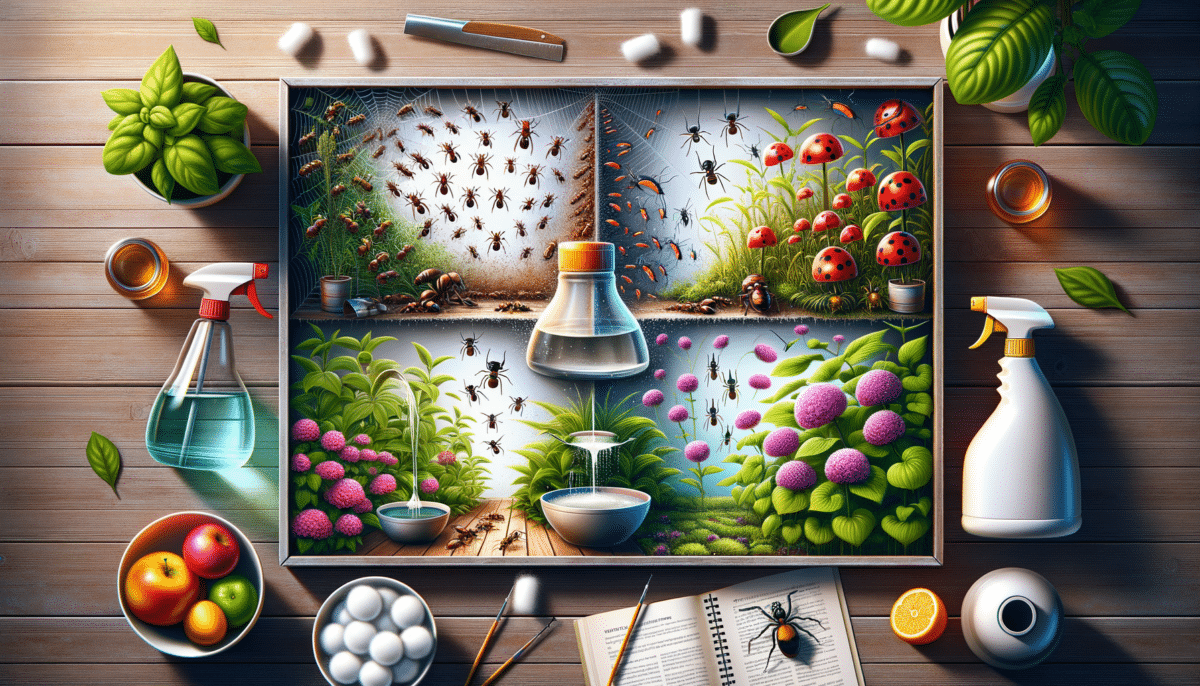Understanding the Role of Vinegar in Pest Control
Vinegar, a common household item, is renowned for its versatility and effectiveness in various applications, including pest control. Its acidic nature makes it an excellent deterrent for many pests. The acetic acid found in vinegar disrupts the chemical trails that pests use to navigate and communicate, making it a valuable tool in disrupting their activities. Furthermore, vinegar’s strong smell can repel pests, keeping them at bay without the need for harmful chemicals.
One of the primary benefits of using vinegar in pest control is its eco-friendliness. Unlike many chemical pesticides, vinegar is non-toxic and safe for use around children and pets. This makes it an ideal choice for households seeking to maintain a healthy living environment. Additionally, vinegar is readily available and cost-effective, providing an accessible solution for pest problems without breaking the bank.
Overall, vinegar serves as a natural, safe, and effective alternative to chemical pesticides. By understanding its properties and applications, homeowners can utilize vinegar to manage pest issues efficiently and sustainably.
Common Pests and How Vinegar Affects Them
Vinegar is effective against a variety of common household pests. Ants, for example, are particularly susceptible to vinegar’s effects. The acetic acid in vinegar disrupts their scent trails, which they rely on to find food sources. By wiping down surfaces with a vinegar solution, homeowners can deter ants from invading their homes.
Fruit flies are another pest that can be managed with vinegar. A simple trap made by mixing vinegar with a few drops of dish soap can attract and capture these pesky insects. The vinegar lures them in, while the soap breaks the surface tension, causing the flies to drown.
Spiders can also be repelled with vinegar. Spraying a vinegar-water solution around windowsills and doorways can create a barrier that spiders are reluctant to cross. Similarly, vinegar can deter other crawling insects, such as cockroaches, by disrupting their navigation and communication abilities.
Using vinegar as a pest control solution is not only effective but also minimizes the need for harsh chemicals, making it a preferred choice for environmentally conscious individuals.
DIY Vinegar Solutions for Pest Control
Creating vinegar-based solutions for pest control is simple and requires only a few ingredients. Here are some effective DIY recipes:
- Vinegar Ant Spray: Mix equal parts of water and white vinegar in a spray bottle. Add a few drops of essential oil, such as peppermint or tea tree, for added efficacy. Spray the solution along ant trails and entry points.
- Fruit Fly Trap: Fill a small bowl with apple cider vinegar and add a few drops of dish soap. Cover the bowl with plastic wrap and poke small holes in the top. The scent of the vinegar will attract fruit flies, and the soap will trap them.
- Spider Repellent: Combine one part vinegar with two parts water in a spray bottle. Spray the solution around doors, windows, and other entry points to keep spiders at bay.
These vinegar-based solutions are not only easy to make but also effective in controlling various pests without the need for synthetic chemicals.
Advantages and Limitations of Using Vinegar
While vinegar offers several advantages as a pest control method, it is important to understand its limitations. One of the primary benefits is its safety. Vinegar is non-toxic and poses no harm to humans or pets, making it a preferred choice for households with children and animals. Additionally, vinegar is inexpensive and readily available, making it an accessible option for many homeowners.
However, vinegar is not a one-size-fits-all solution. Its effectiveness can vary depending on the type of pest and the severity of the infestation. For instance, vinegar may not be as effective against larger pests or those that have established colonies. In such cases, additional measures may be necessary to achieve desired results.
Furthermore, vinegar’s strong odor, while effective in repelling pests, may be unpleasant for some individuals. It is important to consider this factor when deciding to use vinegar as a pest control method.
Overall, while vinegar is a valuable tool in the fight against pests, it is essential to assess its suitability based on individual circumstances and pest control needs.
Conclusion: Embracing Vinegar as a Natural Pest Control Solution
Incorporating vinegar into your pest control strategy can offer a natural, effective, and environmentally friendly alternative to chemical pesticides. Its versatility and safety make it an appealing option for households seeking to maintain a healthy living environment. By understanding the benefits and limitations of vinegar, homeowners can make informed decisions about its use in managing pest issues.
While vinegar may not be a comprehensive solution for all pest problems, it serves as a valuable tool in reducing reliance on synthetic chemicals. By embracing vinegar as part of a broader pest control strategy, individuals can enjoy a pest-free home while minimizing their environmental impact.
